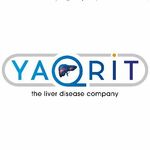Liver Health
Novel treatment of Acute On Chronic Liver Failure, srAH and ACLF therapy focused technology, novel biomarker
Background
Alcoholic liver disease is the most frequent cause of liver cirrhosis and a major non-communicable chronic disease accounting for 6.5% of all deaths and 30-40% of liver related deaths in Europe. Alcoholic steatohepatitis (AH) is a severe complication of long-term heavy alcohol consumption. It accounts for 4.5 hospitalisations per 100,000 persons a year and more than 50% of them develop a liver disease, which progresses to acute-on-chronic liver failure (ACLF) with multi-organ injury and mortality rates of about 40%. Therapeutic options are limited to best supportive care as there is no treatment known to improve quality of life and/or prolong survival of patients with steroid unresponsive severe AH (srAH). A clinically efficacious and cost-effective therapy is an unmet need to treat srAH patients who progress to ACLF.
Key project
The A-TANGO Consortium has developed an innovative therapeutic option that combines two repurposed drugs that target the key pathophysiological mechanisms for patients with srAH and ACLF: targeting inflammation whilst restoring tissue repair and hepatocyte proliferation. A-TANGO will achieve the expected impacts of producing meaningful advances in clinical practice by reducing the mortality and improving the quality of life of patients with ACLF whilst reducing disease burden of individual patients and health care systems following validation in late stage clinical trials. Additionally, A-TANGO aims to discover novel biomarkers for patient selection and defining prognosis, and building health economics models.
Launched to support dissemination and impact for A-TANGO, the Liver Health Helix is an international Open Innovation community of specialists in the fields of liver disease, in particular, from cirrhosis, hepatology, drug manufacturing, bioinformatics, and related disciplines. The Helix supports A-TANGO project's ambition to improve the therapeutic options by shaping new treatments.
This project has received funding from the European Union’s Horizon 2020 research and innovation programme under grant agreement No 945096.

















